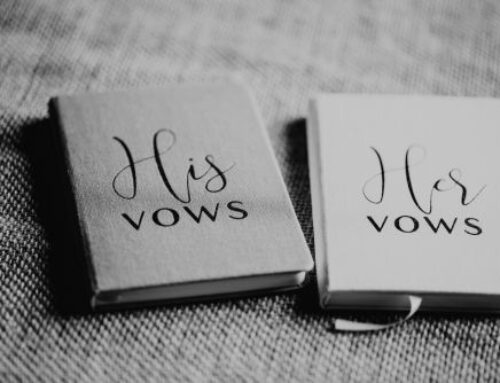“Sometimes I think I need a spare heart to feel all the things I feel.” ~Sanober Khan
I felt her agony and loneliness as if it were my own. Even as I write that sentence, my eyes well up and heaviness fills my heart. Then, I’m reminded to apply the advice I give others.
My mom was a special person, a sensitive soul just like me. Actually, I’m so much like she was, yet so different. One of the differences between us is that I had an opportunity to observe her life’s challenges. I saw her challenges reflected within myself and made a conscious choice to find healthy ways to cope.
You see, my mom was a deep feeler and felt the emotions of people near and far. I imagine it was her strong empathy and personal challenges that led her to want to help others, as a wounded healer in a sense.
But as a helper and healer, she struggled with her mental and emotional health over the years. Witnessing her life moved me to learn how to regulate my own sensitive emotions and set healthy boundaries.
Sometimes I wonder if not knowing how to manage her empathy is what made her sick.
There are many ways to understand the challenges my mom battled before her death in 2007. From her perspective, she had a rare, unknown physical illness. Some who knew her may have thought she was manipulative and attention-seeking. Some would see an addiction to pain medication. Psychologists would diagnose her with psychosomatic disorder, borderline personality disorder, and bipolar disorder.
Maybe all and none of those explanations are true. But perhaps she didn’t have any “disorder” at all. I’m not really asserting that to be true, but merely posing a curious question. What if she was just a sensitive, empathic person who lacked the skills to manage the pain around and within her? What if one unhelpful coping mechanism led a to slew of other ailments?
I believe my mom felt real physical and emotional pain. I struggled to fully understand her over the years. But after many years of reflection, I now trust her experience because of what I know about my own sensitive nature.
As sensitive people, we may present with high emotion and feel easily overwhelmed by our senses. We’re often told by the world that there’s something wrong with us. And when we think there’s something inherently wrong with us, we tend to tuck these traits away into our “shadow” or unconscious mind.
Well, now we’ve not only tucked away our core nature, but possibly the empathic depth that goes along with being a sensitive person as well. There may be a part of us that knows that we’re emotional sponges. Yet, we may choose to ignore our nature without really learning how to manage our empathy in such a way that prevents “dis-ease” and fosters well-being.
This was me for a long time.
Not only am I prone to feeling depleted and drained in situations with certain people, but emotional pain of others tends to show up in my physical body. When I over-feel, my throat feels like it’s closing and as my chest constricts, my chronic back pain flares up.
My boyfriend was complaining of one of those small, painful pimples inside his nose recently. I got one as well. We joked about sympathy pains, but I do wonder sometimes.
I’ve felt the emotional pain of my family, friends, clients, and strangers. It’s not a simple, “Oh, I feel bad for him.” It’s feeling the despair and rejection of that teenager whose parents didn’t pick him up when he was released from the behavioral hospital where I worked. It’s the deep anguish of being that relative who feels no one believes her and she’s all alone.
I feel challenged to find the right language to express it all because the deep heartache and heavy burden is a feeling not a word.
The thing is that no matter how painful it is to feel the weight of the world in my body, I wouldn’t trade my depth and ability to feel for anything. The empathy that comes with high sensitivity is a true gift if we know how to use it.
We need more kind, compassionate souls if we want to heal the world. Sensitive people have a natural capacity to show kindness because of our profound empathy.
Deep empathy gives us a special strength in relating and connecting to others. When we genuinely care, we’re more apt to be able to understand another person in a way not that all people can. Our sincerity can help us to develop meaningful, fulfilling relationships.
Relationships offer us a chance to not only grow a deep sense of connection with another human being, but also an opportunity to learn about ourselves. Both of these are integral to the human experience.
And as sensitive people, we not only feel the intensity of pain, but also the intensity of joy.
Yet, regulating our empathy is key to stopping the flood of emotion from overwhelming our ability to cope and care for our well-being.
If we want to stop absorbing emotional baggage from others, it all starts with taking care of our physical, social, mental, emotional, and spiritual needs. I know it sounds like the whole world is harping on the idea of self-care, but there’s a reason for this.
When our own immune system or energy is depleted, we become a perfect sponge for sopping up emotions. We must take care of ourselves to avoid absorption in the first place.
1. When you notice heavy emotion, start by labeling what you’re feeling.
Labeling helps to bring us into a state of pause, which can help us to gain a little distance from the emotional experience for a moment.
2. Ask yourself whether what you’re feeling is yours, someone else’s, or a mix of the two.
It can be difficult to discern the difference sometimes. One approach I like to take is if I think I might be feeling a particular person’s “stuff,” I’ll imagine the person as completely whole, content, and full of light. Then I’ll revisit my own experience and see if I still feel the same way.
This played out in a recent loss in my life. While I was experiencing my own grief, when my relative who was closest to this person seemed to start to heal, I realized that much of my sadness released as well.
3. The moment you catch yourself feeling emotions that aren’t yours, raise your awareness of what’s happening within you.
It can help to say the word “compassion” to yourself as a way of intentionally focusing on what you can do to be supportive rather than allowing yourself to be overpowered by emotion.
4. Take a deep breath and notice where in your body you feel the most calm, grounded, or neutral.
It might be as simple as your toe or finger. Bring your attention to that place in your body and allow it to be a centering force to keep you grounded while you process and release any feelings you may have absorbed. Sometimes just having one calm place in our body can serve as a resource when the rest of you is feeling overwhelmed.
5. Return the other person’s emotions to them.
It is not your responsibility to carry other people’s emotional distress, and equally important, it helps absolutely no one. Try saying to yourself, “I’m letting this emotional pain that is not mine go now.” Remember that other people have to go through their own processes in order to grow.
6. Use visualization to fully release the emotions.
I find that it helps me to visualize a waterfall flowing through my body as a final release of any residual emotional gunk I might be carrying.
—
At the center of all of the above steps is building the awareness to know when we’re allowing ourselves to absorb and and adopting tools to reduce this propensity. As a sensitive person, your empathy is a gift that the world needs. It’s up to each of us to channel our empathy into greater compassion so that we can remain strong and well.
—
About Melissa Renzi
Melissa Renzi is a Licensed Social Worker and Certified Trauma-Informed Yoga Teacher. She helps sensitive souls transform anxiety and cultivate lasting self-love. She leads global retreats designed for women, introverts, and highly sensitive people that focus on renewing self-care and deepening our connection to the natural world. Access her Highly Sensitive Person’s Relationship Guide for concrete tools to create intimate, fulfilling relationships.
This post was republished with permission from tinybuddha.com. You can find the original post here.





Leave A Comment